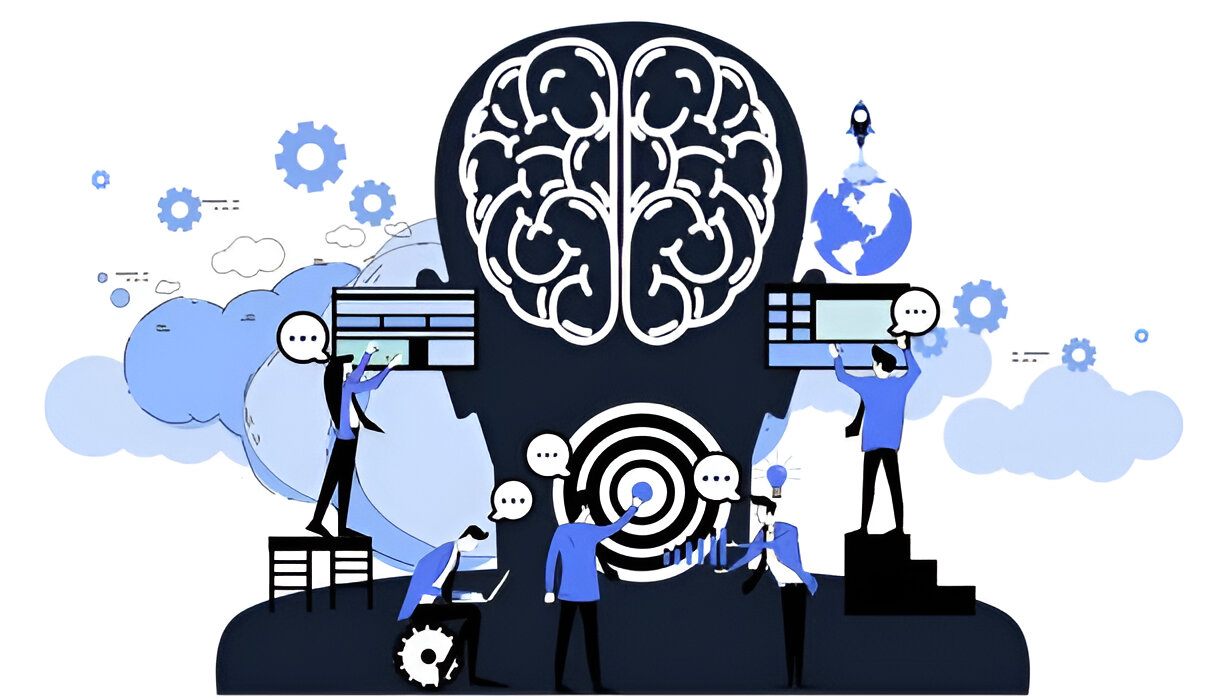Integrating Artificial Intelligence (AI) into mental health practices has revolutionized the way we approach the diagnosis, treatment, and management of mental health conditions. From AI-driven mHealth app development to custom healthcare software development, technology has enabled mental health professionals to provide more accessible and personalized care. However, it is important to understand both the benefits and considerations associated with integrating AI into mental health practices.
Benefits of Integrating AI in Mental Health Practices
- mHealth App Development
One of the key benefits of integrating AI in mental health practices is the development of mHealth apps. These apps provide individuals with access to mental health resources and support at their fingertips. Apps for mental health professionals can offer features like symptom tracking, cognitive-behavioral therapy exercises, and medication reminders. AI-powered algorithms can analyze data from these apps to provide personalized recommendations and treatment plans that cater to the specific needs of each individual. - Tailored Treatment Plans
The advent of customized healthcare software development has enabled the creation of tailored treatment plans for individuals with mental health conditions. By utilizing AI algorithms to analyze extensive datasets, mental health experts can identify patterns and trends, thereby allowing them to personalize treatment plans according to the specific needs of each patient. This high level of customization has the potential to enhance treatment outcomes and increase patient satisfaction. - Timely Identification and Intervention
Utilizing artificial intelligence in mental health services enables the prompt identification and anticipation of mental health disorders. Through the examination of data from different outlets such as social media, wearable devices, and electronic health records, AI algorithms can pinpoint initial indicators of mental health concerns and forecast potential dangers. This empowers mental health experts to intervene sooner, offering timely assistance and averting the escalation of conditions.
Considerations for Integrating AI in Mental Health Practices
- Ethical concerns
Incorporating AI into mental health services brings about various advantages, but it is crucial to address ethical concerns. Safeguarding privacy and data security is paramount when handling confidential mental health data. Developers and healthcare providers must guarantee that the application or platform adheres to applicable privacy laws and upholds rigorous data security protocols. - Insufficient Emotional Intelligence
The incorporation of AI in mental health practices poses a significant hurdle due to the insufficient emotional intelligence exhibited by AI systems. Although AI can provide assistance and valuable perspectives, it is incapable of substituting human empathy and connection, both of which are vital aspects of mental health treatment. Mental health experts must persist in their active involvement in patient care, providing emotional support and comprehension that AI technology is unable to duplicate. - Algorithmic Biases
When AI algorithms are trained on biased or incomplete datasets, they may display biases. This can result in inaccurate diagnoses or treatment suggestions, which could worsen disparities in mental health care. It is crucial to continuously monitor and evaluate AI algorithms to guarantee fair and precise results for every patient. - Challenges in Complex Situations
Despite the progress made in AI technology, there are challenges when it comes to comprehending and addressing complex mental health conditions. Mental health experts should view AI as a supplementary resource rather than depending entirely on its suggestions. It is essential to uphold clinical expertise and continuous professional growth to guarantee the suitable and efficient utilization of AI in mental health care.In the end, Utilizing artificial intelligence in mental health services via mHealth app creation and tailored healthcare software development presents notable advantages such as individualized treatment strategies, timely identification, and intervention. Nevertheless, it is crucial to tackle ethical issues, algorithmic biases, and the constraints of AI in comprehending intricate mental health disorders. Through thoughtful integration of AI tools, while upholding the human touch in mental healthcare, we can utilize technology's potential to enhance patient results and the general standard of mental healthcare.

